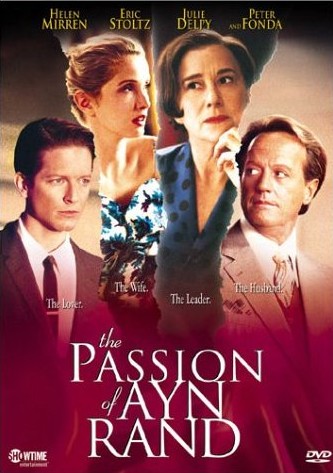My view of the Roman Polanski case is the conventional one: he has admitted to having sex with a girl who was under-aged at the time, plying her with drugs and alcohol to do so, and is a fugitive from justice. Nothing else matters to me including the amount of time that has passed, how much he has suffered before and after the event and how great a talent he is as a film director. Incredibly, despite what seems to me to be a fairly clear cut case, the man still has defenders, even on QT3. I am also absolutely flabbergasted by the French government’s response to the arrest.
The reason for this post however pertains not with the case directly. I’ve been thinking about Ayn Rand’s books again recently, prompted by my wife’s discovery that Chinese translations of her books now exist. Her parents are currently on an extended trip to China and she’s asked them to buy copies of those books if they can find them. I’m very curious what they would be like in Chinese.
Anyway, the connection here is that Ayn Rand has always believed that values and virtues are absolute, hence the name of her philosophy “Objectivism”. This extends to aesthetics as well. According to her worldview, only a person of virtuous character could create or even admire a great work of art and conversely, all works of art that are great must by definition have been created by someone of unimpeachable virtue. Naturally, this leads to amusing consequences. For example, Rand believed that homosexuality is morally wrong and therefore every thing that a homosexual does or creates is tainted. This means that anyone who professes to admire a work created by a homosexual must be flawed in some way as well.
I don’t pretend to be enough of a film buff to be able to competently judge Polanski’s work but I see no reason to doubt the overwhelming consensus that he’s a great director. This, of course, contrasts rather spectacularly with his moral failures as a human being. I’m sure everyone can find many other examples of great talent, especially in entertainment, that have a less than perfect character. So this serves as one example, amongst many others, why Rand’s philosophy isn’t a particularly robust one. I do note that the ancient Chinese shared similar views in this regard. They believed for example that a person’s virtue could be demonstrated through his calligraphy or his paintings. This just goes to show how seductive the idea is that skilled people should also be moral people and how shallow it is to hold up someone as a general role model just because of high achievement is a narrow field.
